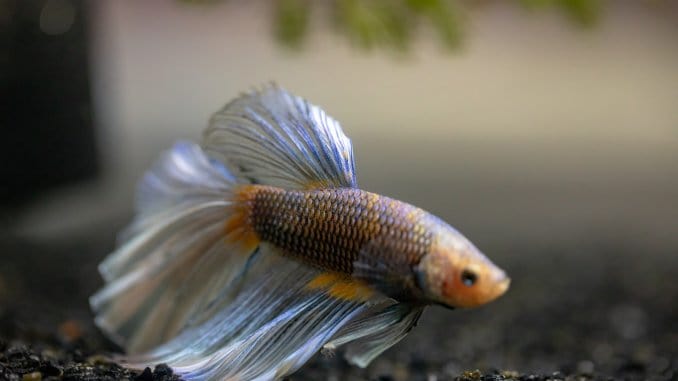
Betta fish are gracious but slightly self-centered fish.
Many beginners struggle with feeding bettas, as their greedy appetites can be confusing.
They never hesitate when they see food, even if it means stealing from fellow tank mates. Although with Bettas it may seem like they will eat anything, in reality, this isn’t true.
How do you know which foods are better? How often should you feed them? Will they really eat until they’re full or are there feeding guidelines?
Keep on reading as we address all these important questions, review the best Betta fish food and more…
- The Best Flake Food: Omega One Betta Flakes
- Premium Freeze Dried Food: San Francisco Bay Freeze Dried Bloodworms
- The Best Pellet Food: Ocean Nutrition Atison’s Betta Food
TABLE OF CONTENTS
Best Types of Betta Fish Food
There are lots of different types of Betta fish food available.
The most common ones are flakes, but there are other options such as pellets and live foods.
Here are all the different foods you can feed your Betta fish:
Flakes
Flakes are the most popular Betta fish food- they provide just enough nutrients and are found in almost any pet store. However, their popularity is largely due to their cheap prices.
They are priced around $5–$6 for 3.5 oz.
They are designed to include all the main nutrition that your fish need, but they are less nutritious than freshly prepared or live foods. For that reason, flakes should not be the primary food source, and it is worth looking at some of the other options available.
Flakes can be a good fit for the Betta diet, but they should be given less often than other types of food. You can periodically include and exclude flakes from their diet, swapping them out for other foods.
The Best Flake Food: Omega One Betta Flakes
This top quality flake food includes all you Betta fish need to live a healthy and happy life. You instantly know that this is a premium product just from taking a look at the ingredients list.
Pellets
Pellets are the most effective choice for Bettas and can be used as a daily source of food. Unlike flakes, they are higher quality and can be found in most local pet stores.
They come in all sizes and colors.
Many pellets are sold in small cans with a lid, and some even including leaflet with feeding instructions.
Pellets are a similar price to flakes at around $6 per 1oz.
The Best Pellet Food: Ocean Nutrition Atison’s Betta Food
This premium food is perfect for bringing out the bright and vivid colors of your Betta fish. Ocean Nutrition Atison’s Betta food is a high quality floating pellet.
Freeze Dried Food
Freeze dried foods are the same foods that can be found with live foods, only all the moisture has been removed from the product.
They are not as nutritious as either live or frozen foods, but they have a slightly higher nutritional value than flakes and pellets.
Usually you are looking at spending about $6–$7, depending on what you buy. They are also suitable for daily use, which is important.
Premium Freeze Dried Food: San Francisco Bay Freeze Dried Bloodworms
This food has the highest protein content of all the products we’ve listed here today, with a minimum of 51% crude protein. It makes a delicious treat for your Betta fish.
Live Foods
This is the best type of Betta fish food and will meet your fish’s dietary needs and help them live long.
However, it isn’t without it’s drawbacks (price, availability and maintenance). Live foods will often be more expensive, found in fewer places and will require specific storage conditions.
Nevertheless live food is a very tempting choice. After all, this is what fish eat in their natural environment. Live food is quite a broad term and includes anything from invertebrates to worms and shrimps.
With this variety of food also comes the variety in price – they will depend on what you decide to buy and where you buy it from. Worms tend to be one of the cheaper choices.
Frozen Food
Frozen food is basically the same as live food, only frozen. Some people think frozen foods are more preferable because it is easier to store.
Also by keeping them frozen, you significantly increase their lifespan and reduce the probability of contamination.
The nutrition these foods provide is slightly less than live foods, but frozen food is cheaper and easier to find.
How To Read Fish Food Labels
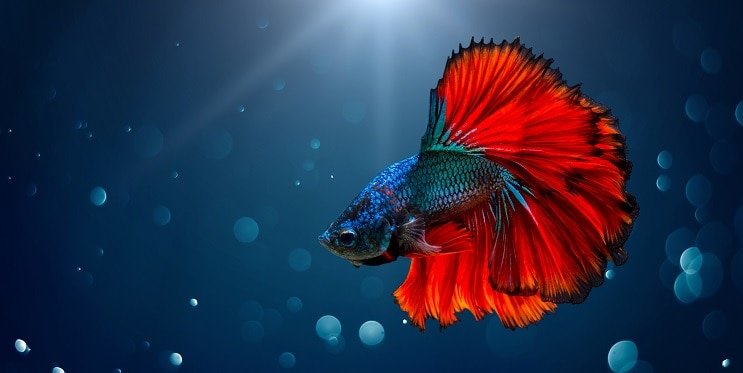
These fish require a healthy balanced diet of meaty and plant-based foods.
A standard container of Betta food should include all the required nutrients, but how do you know for certain? Well you are going to need to read about the actual content inside.
It’s important to know that the ingredients will depend on the type of food you use. Ingredients will also vary by brand, as different manufacturers will use different things. This is important because it directly impacts the nutritional value of the food.
The ingredients listed at the top of the list, indicate the weight of the ingredient used. So you need to choose a Betta fish food which has high protein content foods listed at the top – especially if you are breeding them. This will usually be any type of fish product.
Let’s look at flakes as an example. Most of them will be made out of shrimp, worms or similar ingredients. Generally this is what the fish would eat in the wild.
However, you should look out for any additional artificial enhancements that have been added. This will usually be indicated by a small note somewhere below the main ingredient list. Avoid food containing excessive amount of chemicals or preservatives.
Although the main ingredients should be protein based, any good diet should be well balanced. It should contain a fair portion of other nutrients, like fats and fiber. Buying something containing a high amount of one ingredient is not a good idea.
Watch out for filler ingredients such as wheat flour and rice meal.
Remember if you’re concerned about the ingredients you can always make your own fish food.
How To Feed Your Betta Fish
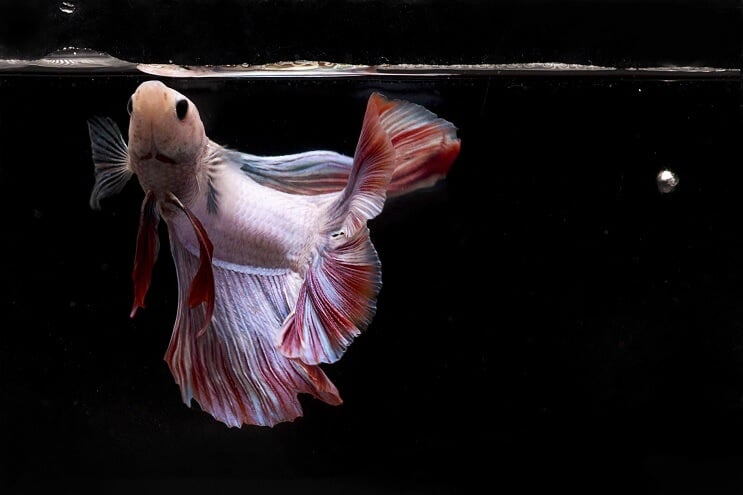
To keep your fish as healthy as possible, it’s important that you not only understand what fish eat, but when and how often to feed them.
How Much Should You Feed Your Betta?
Unfortunately, fish are not capable of regulating their own appetite. In the wild they often have empty stomachs, and are constantly looking for prey. This contradicts the popular myth among aquarists that fish know when they are full.
They cannot, and this is very important to keep in mind.
There is an easy way to figure out the suitable portion size. When you feed them, watch how much the fish eats in two minutes. If your fish likes to take his time, allow up to five minutes.
Remember that the portion will depend upon the food itself (the portion size for pellets and granules will vary).
Another golden rule you can follow is: the size of a portion should be equal to about 5% of the Betta’s body size.
All the food that ends up at the bottom of the tank should be removed.
Otherwise, granules that stay at the bottom will begin to dissolve and affect the quality of the water. It can be toxic and will degrade the water quality, which can eventually lead to health complications in fish.
There is also another golden rule you can follow: the size of a portion should be equal to 5% of the Betta’s body size.
How Often Do You Feed Your Betta Fish?
Fish of their size don’t require much energy, so feeding them twice a day should be enough.
Other than that, it is a good idea to sometimes give your fish a break and allow their digestive system to get rid of any toxins and process everything – you can choose a day every week or two.
Another very important point to remember is never mix different food types in one portion. It can overload their digestive system and cause different health problems.
Frequently Asked Questions
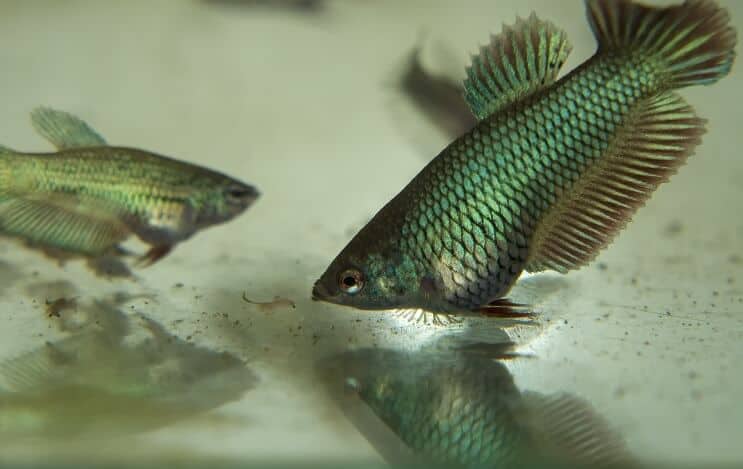
What Do Betta Fish Eat?
Bettas are carnivorous fish that need lots of protein in their diet. In the wild, they will typically eat small meaty creatures such as worms, daphnia, bloodworms, brine shrimp, mosquito larvae and other fish.
In captivity, a Betta’s diet needs to be high in protein, meaning they need plenty of meat.
Most of the foods which they like to eat in the wild can be bought in live or frozen form for your aquarium. You might also want to feed them copepods, white worms, glass worms and fruit flies.
My Betta Fish Is Not Eating?
In most cases fish will not eat because of sickness, but sometimes other factors come into play.
For example, the Betta might not enjoy a particular type of food.
These fish can have trouble fitting larger granules in their mouth. If that’s the case, consider either grating the foods or buying smaller ones.
What Happens If I Overfeed My Betta?
Overfeeding can lead to sickness, discomfort for the fish and an unpleasant appearance. It is the main cause of problems with the digestive system and significantly impacts the ability of your fish to swim normally.
Fortunately overfeeding is very easy to spot – their abdomens will become really oblate.
Is My Betta Fish Bloated?
If your Betta Fish is bloated, it’s likely that they are constipated.
Unfortunately constipation is common with Betta Fish. Symptoms of constipation include a bloated stomach, not creating much fecal waste and not wanting to eat.
The main cause of constipation is over feeding. This is why it’s really important to stick to a feeding schedule.
To treat this just fast him for a couple of days until the bloating has gone down. Then resume feeding, but make sure you are feeding less than you originally were.
Summary
The Best Pellet Food: Ocean Nutrition Atison’s Betta Food
This premium food is perfect for bringing out the bright and vivid colors of your Betta fish. Ocean Nutrition Atison’s Betta food is a high quality floating pellet.
The Betta fish is without a doubt one of the most exciting and beautiful fish out there.
Their diet is mainly built around meaty protein rich foods. They can feed on pellets, flakes, granules, and more.
Remember to keep an eye on portion sizes to avoid overfeeding, as it can have severe consequences for the health of your fish.
Overall, their diet is not complicated and after some time even beginners will easily be able to handle feeding Bettas.
What do you feed you Betta fish? Let us know in the comments section below…

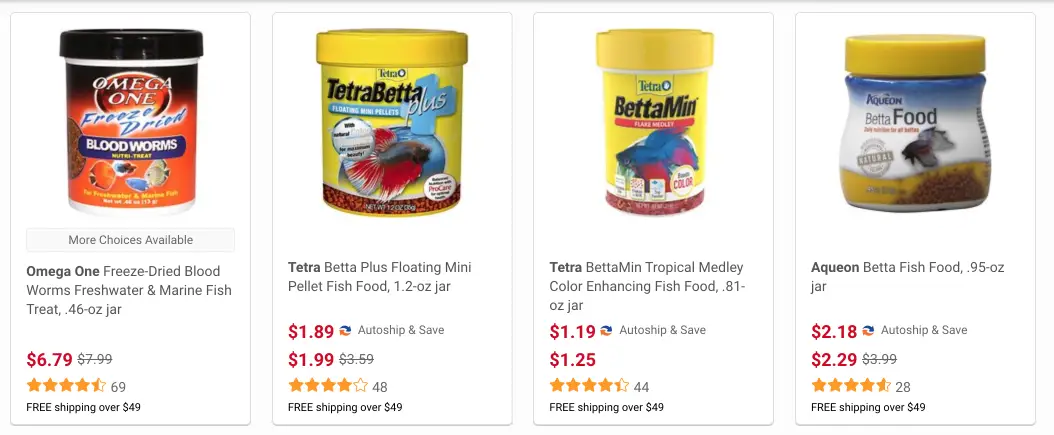
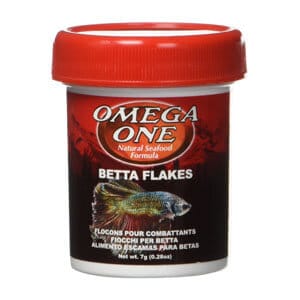
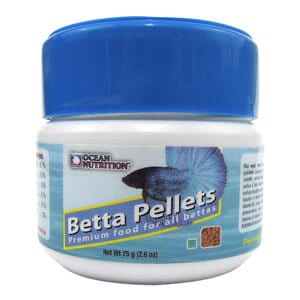
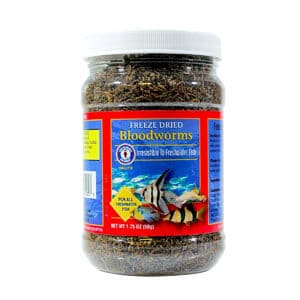
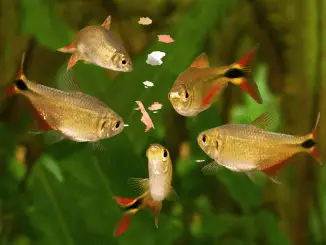
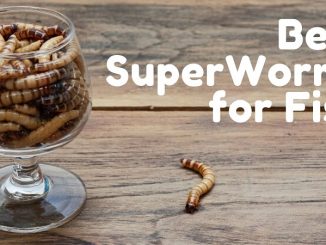
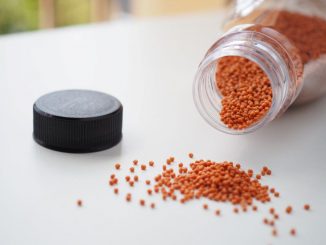
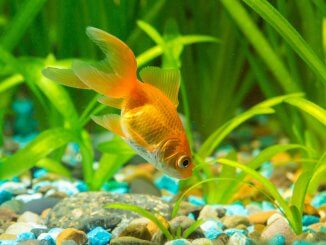
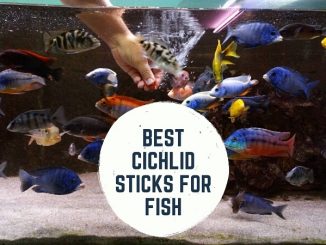
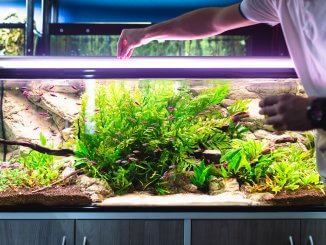
I feed my betta aqueon betta pellets. I tried flakes but does not like them. His name is eggplant and he is a black orchid male. I also give him San Francisco brand bloodworms.
My Bettas have all enjoyed the Aqueon Betta Pellets. And as a treat I give them a few freeze dried bloodworms from time to time.
I’m looking to start a 20 gal. community tank with a male Betta, a shoal of neon tetras, a harlequin, a catfish, and maybe 1 other compatible tank mate. In a community situation, how does one go about meeting all their food needs? Would a mix of Betta pellets and flakes be ok?
My female’s love frozen brine shrimp I have a sorority of 5 in a planted 10 gal and 2males separated in there own 3gal tanks but I do switch out and give them a variety pellet’s and flakes every few days gunna try them on frozen blood worms and see if they like them
As far as I know, two weak points of Betta Floating Mini Pellets for bettas are the rough edges of the pellets which could be disturbing or slightly harmful particularly for very young and small bettas and this does not contain all the essential nutrients that bettas need.
My Betta is a very picky eater and I struggle to feed him. Flakes and pellet foods just end up sinking untouched to the bottom. The only thing he will voraciously eat are freeze dried bloodworms and brine shrimps. I worry that in the long run this will not bring him all the vitamins, minerals and what not he needs. Any advice?